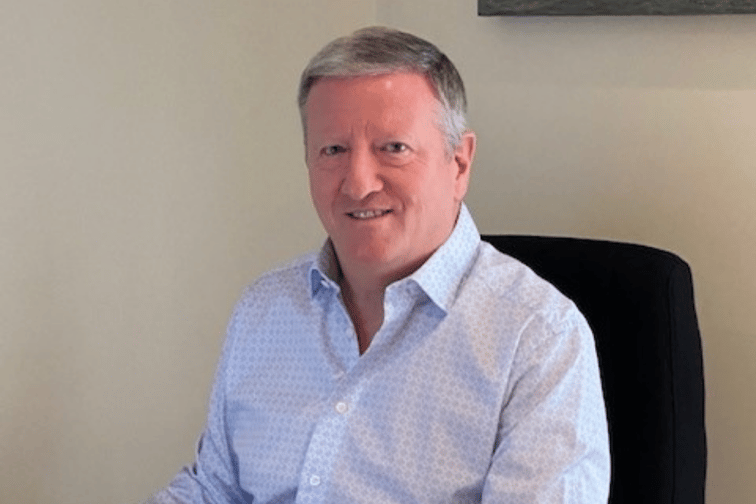

There’s a simple premise at the heart of how the team at Heath Crawford & Foster Limited (HCF) do business – keeping it all about the people. Whether it’s around clients, internal staff or acquisition prospects, that people slant remains integral to the firm’s growth strategy and has borne out well over the last 18 months, which have seen the business double in size, complete a raft of acquisitions and boost its GWP to over £20 million.
It has been an interesting period noted founder and MD Paul Weinberg (pictured), and keeping that ethos front of mind during recent developments has allowed HCF to create a distinctive acquisition model which is resonating well across the wider market. Only last Friday, the broking group announced its acquisition of Merenda & Co and EFM - two Southend-on-sea brokers that share critical touchpoints in their business models and the ambitions of their leaders.
“What was most important was that the directors really wanted to stay on to look after their clients, but just wanted to have a bit of a secure financial future, and to take some money off the table,” he said. “For me, the whole ethos of what I want to do moving forwards is to build up a business where the existing directors of [our acquired] firms stay around to continue to look after the client base that they’ve built up over many years.”
In conversations with the two teams, Weinberg said, it emerged that they knew and respected each other very highly and were keen to work together. As a result, the deals have seen the businesses merge and move into one office, creating a great economy of scale and a good-sized business to serve their clients without resulting in any real shakeups for their client bank or internal teams. These acquisitions are about continuity and growth, not asset stripping, he said, and he is not looking to get rid of any staff members.
The market is responding well to that ethos, he said, as HCF is seeing that at the same time that directors of small-to-medium-sized brokerages don’t want to lose their identity by selling to a big multinational, they also don’t want their clients to lose the experience of dealing with a local brokerage.
“A lot of [clients] really understand the value of speaking with a local broker who understands the trials and tribulations of running a business,” he said. “And I think that those clients that we look after really appreciate when you can sit down and talk to someone and spend half an hour talking about the aggravation of running a business rather than just solely talking about insurance sales. That’s one of the key things that we bring to smaller businesses…
“And so much of the business coming to us from the multinationals are SMEs who are the perfect size for us to look after, and they are telling us they’re not getting any service from the big boys. They just can’t identify with their account handlers because they’re dealing with junior account handlers who are not able to understand what they’re looking for in their business as well as in their insurance.”
HCF is keen to take its acquisition pipeline at a measured pace, Weiberg said, and not to jeopardise its reputation and standing in the wider market by pushing ahead with deals that don’t fit in with its overarching focus. With Merenda & Co and EFM over the line, he is now in discussions with two other broking businesses. The first of these specialises largely in the property market, which is a neat fit as the group’s Watford office is very established in the property market, while the other is a smaller sized brokerage.
The problem with talking about acquisition pipeline these days is the timeline behind these deals, he said. After all, it takes several months to negotiate the acquisition, before further months dealing with the lawyers and then going to the FCA to get change of controller approval takes another three to five months. One of the negotiations is well underway, and Weinberg has his fingers crossed for a summer announcement while the other will likely be later in the year if all goes well.
“We need to have a pipeline of people to speak to, but I also don’t want to jeopardise anything by going too fast,” he said. “So, two more in this year would be great but if a third one comes along and it has got the same interests that we have and seems to fit in, maybe we’ll go for that too.
“The nice thing for me as a business owner is that because we’re keeping on directors, they know how to run a business, they’re not calling on me every minute of every day to help them with anything. They don’t need me to hold them by the hand, we just catch up to talk about some ideas and whether or not they work for them.”
Acquisitions are only one strand of HCF’s growth strategy, he said, and organic growth remains the cheapest way to build a business and, as such, a key factor for the group’s continued evolution. Buying businesses while leaking business is a recipe for failure and while bringing in new firms offers a great injection of premium and commission income, it’s critical to never take your eye off the ball of what’s happening internally, as that’s where the real value of a business lies.
“Of course, it’s all about people at the end of the day,” he said. “And you know something, having bought those two businesses only 10 days ago, I’m sitting here on a beach in Dubai. And I know I’ll get a few emails and a few phone calls during my holidays but nothing major, nothing that needs me to rush away to see anyone. And that’s the pleasure of having directors staying in the industry and running the business.”
